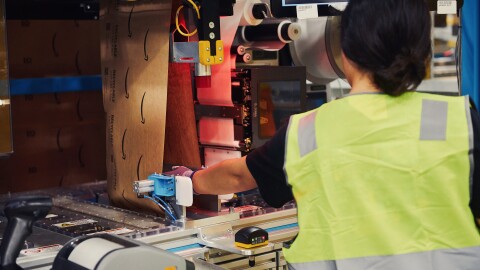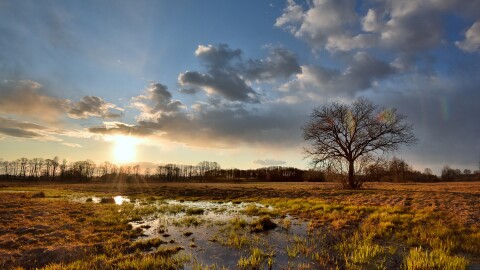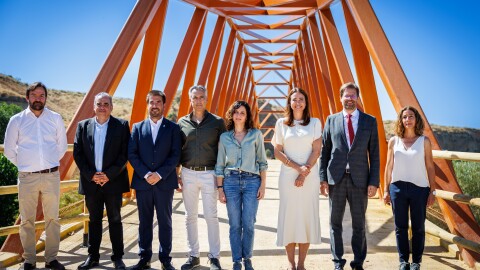Amazon has announced a €1 million grant to the KARUNA social cooperative to plant 20 “tiny forests” in under-utilised public and community spaces across Berlin over the next three years. Each forest will be the size of a tennis court and will be planted with over 650 native plants from 25 different species, with the intention to help Berlin build resilience against effects of climate change.
Amazon is funding this project through our Right Now Climate Fund (RNCF), a $100 million initiative supporting climate resilience and nature conservation in the communities where we operate. The fund supports nature-based solutions that complement Amazon’s broader decarbonisation and sustainability efforts.
Cities like Berlin are facing rising temperatures, increased flood risks, and water shortages. Mini-forests can act as natural sponges, absorbing rainwater and reducing the risk of flooding, while providing shade and cooling city environments. Rich, diverse mini-forests can also promote urban biodiversity, and are expected to become a dense, natural forest in just a few years.

KARUNA eG is a social cooperative founded in 2016 in Berlin. Supported by over 100 members, it works on project-based solutions for a sustainable and equitable future. For planting the tiny forests, KARUNA is collaborating with MIYA Forest e.V., a non-profit organisation founded in 2021 in Eberswalde. MIYA aims to create small, multifunctional forest oases in urban locations through the planting of mini-forests, providing a range of ecosystem benefits and also serving as educational spaces.
“Berlin is an important place for Amazon and we want to make the communities where we operate a better place. That is why we are excited to support a nature-based project like this in Berlin,” said Rocco Bräuniger, Country Manager of Amazon Germany. “This is a brilliant concept, and we look forward to collaborating with KARUNA, which has a strong reputation for community-oriented work.”
The concept of planting dense, fast-growing trees and shrubs, pioneered by Japanese botanist Akira Miyawaki in the 1970s, has become increasingly popular, with a variety of species planted to recreate the layers of a natural forest. Once planted, these dense green areas can thrive in small urban spaces without much maintenance. There are a number of benefits to planting Miyawaki-style forests, including providing shade, absorbing water and carbon, and providing a home for wildlife.

"Having a company like Amazon recognise the value of the “Tiny Forests” concept is a huge step forward for us. That is why we are so excited about our collaboration with Amazon," said Jörg Richert, founder of KARUNA. "A mini-forest is something that everyone can participate in: it grows quickly and improves everyone's urban living experience.”
In 2021, Amazon allocated €20 million from the RNCF for nature-based projects across Europe. This funding will enable the planting of 450,000 trees in UK towns, restore 600,000 square metres of habitat in France and 500 hectares of blanket bog in Ireland, train students to fight climate change in Spain, and create a new green-jobs sector in the Netherlands by supporting Europe's first commercial-scale seaweed farm. Other projects supported by the fund aim to create green corridors in Italy and Spain, and protect historical woodlands, such as Belgium’s National Park Brabantse Wouden.












